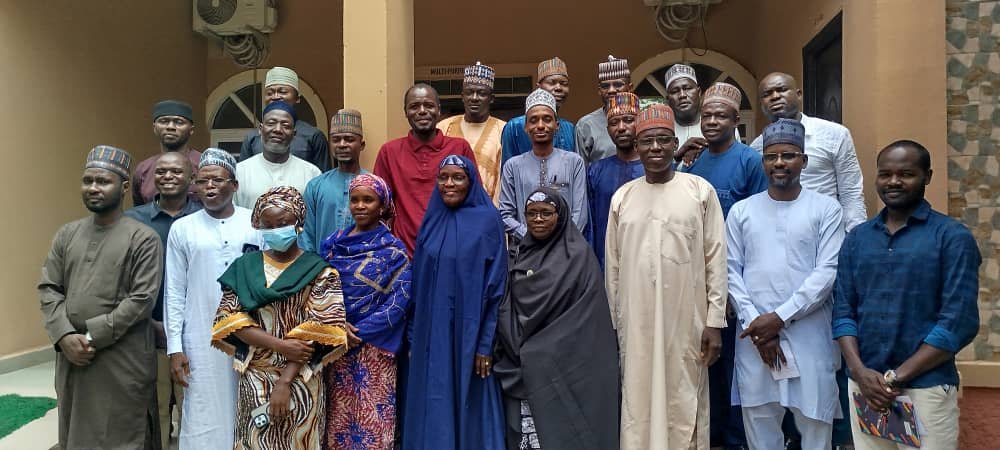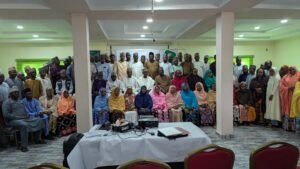
Stakeholders Reaffirm Commitment to Expanding Family Planning Access in Yobe
By Baba Dan’Iya
Media professionals, health workers, religious leaders, and development partners have reaffirmed their commitment to strengthening family planning services in Yobe.
They assured for a continued collaboration to address lingering challenges and misconceptions around child spacing.
Chairman of the Advocacy Team, Mustapha Yusuf Musa, said the group had since April 2024 leveraged radio programmes, special reports, and community outreach to promote reproductive health education, especially in underserved communities.
“Media engagement has helped to demystify family planning. We now have encouraging reports from rural areas where couples freely discuss child spacing – something that was once considered taboo,” Musa said.
He acknowledged the vital support of the Yobe State Government and development partners for providing capacity-building, logistics, and advocacy tools.
However, he noted that insecurity, limited health personnel, and the expansive geography of the state — covering over 47,000 square kilometres — continue to hamper widespread outreach efforts.
In her remarks, Hajiya Fatima Abba Jiddum, Deputy Director and Reproductive Health Coordinator with the Yobe State Primary Health Care Management Board, reiterated that both short- and long-acting contraceptive methods are available free of charge at all public health facilities.
“Initial resistance has gradually reduced. Even women from remote villages now visit clinics to access family planning services,” she said.
The roundtable featured interfaith dialogue sessions aimed at addressing cultural and religious barriers to contraceptive use.
Pastor Samaila Jarmaya Baba, a Christian cleric, said while the Bible does not directly prescribe family planning, it encourages responsible parenting and stewardship.
“Ensuring the welfare of one’s family — emotionally, physically, and economically — often means planning one’s family size within one’s means,” he stated.
Echoing this perspective, Ustaz Suleiman Abubakar, Chief Imam of Bilal Masjid, Damaturu, said Islam permits child spacing for health and financial reasons.
“It is unwise to have children without the resources to cater for them. Islam supports moderation and planning,” the cleric added.
As the current phase of the TCI programme is expected to wind down in August 2025, stakeholders at the forum resolved to deepen engagement with community leaders, traditional rulers, and faith-based organisations to counter misinformation and sustain momentum.
The meeting concluded with a unanimous call for continued partnership among the media, government institutions, and religious bodies to ensure that every woman in Yobe can access reproductive health services in a safe and stigma-free environment.


